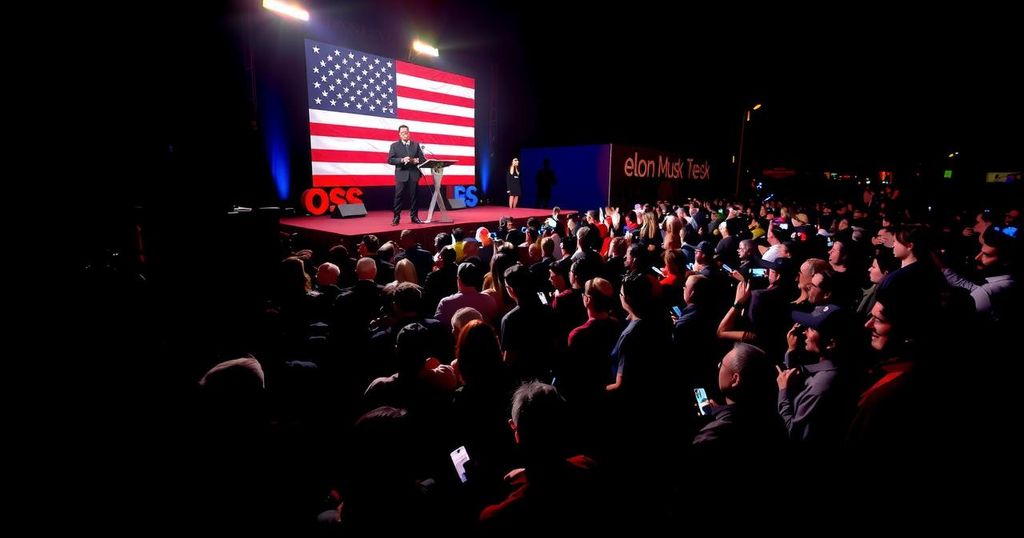On a Monday evening, Elon Musk facilitated a conversation with Donald Trump via an audio livestream on the platform X, formerly known as Twitter. Prior to the event, Musk clarified that he would not engage in an interview format with the former president but would instead encourage a discussion. He stated, “Nobody is quite themselves in an interview, so it’s hard to understand what they’re really like.” This remark set the tone for the ensuing two hours during which Musk eschewed rigorous questioning, preferring to present light topics for Trump to elaborate on at length.
The session unfolded with numerous technical difficulties and ultimately resembled a digital rally. Trump delivered a lengthy monologue touching on various personal grievances, including allegations of an assassination attempt, the rising cost of bacon, border security issues, and an odd reference to “nuclear warming,” all while Musk interjected minimally to acknowledge Trump’s points. Strikingly, the dialogue between these two high-profile figures was characterized by a lack of depth and engagement, leading to a meandering narrative that appeared tedious even to Trump’s staunch supporters. When Trump took a moment to conclude a train of thought, Musk would, rather awkwardly, acknowledge him and shift the focus to a different matter.
This event marked a notable resurgence for Trump on a platform that has been pivotal to his political journey. Between 2015 and 2021, his account held substantial influence and scrutiny, leading to a temporary ban following the January 6 incident. Musk reinstated Trump’s account in 2022 upon acquiring Twitter, yet Trump has seldom utilized it post-restoration. What was anticipated to be a triumphant moment for both men regrettably devolved into an echo chamber of mutual admiration, with neither offering substantial critique or engagement beyond agreeable platitudes.
Musk’s discussion with Trump inadvertently revealed the insular nature of elite conversations between billionaires that often lack genuine substance. While Musk initially encouraged Trump to recount his harrowing recent experiences, the conversation quickly deviated towards a series of shared grievances including immigration and governmental expenditures. Trump lauded Musk for his employment practices and noted the commendability of firing striking workers; Musk responded with complacent acknowledgments.
As the evening progressed, both Musk and Trump repeatedly emphasized the significance of their dialogue. Musk claimed, albeit without substantiation, that there was a hacking attempt aimed at disrupting their conversation, while Trump grossly exaggerated the audience size, stating that 60 million people were listening, when actual numbers indicated a mere 1.1 million.
Rather than drive conversation around pressing issues, the two focused on the magnitude of their meeting. It is essential to note that the viewership of this event paled compared to Trump’s earlier appearances, such as his debate with President Joe Biden, which attracted over 51 million viewers. Thus, this livestream ended up feeling more like a demotion for Trump, a figure whose political identity is heavily tied to media visibility.
The dynamics observed in this interaction echo patterns seen in Musk’s previously disclosed communications with other influential figures, where flattery and sycophancy dominate the exchanges. Both sets of communications illustrate a disconnection from the mundane realities faced by the average citizen and highlight how individuals in power often reinforce each other’s status without genuine engagement or insight. For Musk and Trump, despite their claims of influence, their dialogues reveal an unsettling truth: they are ensconced in a bubble where their perspectives are validated rather than challenged, gravely limiting their understanding of the world outside their elite circles. This highlights a broader societal issue regarding how wealth and influence can distort reality, ultimately rendering conversations both hollow and uninspiring.
